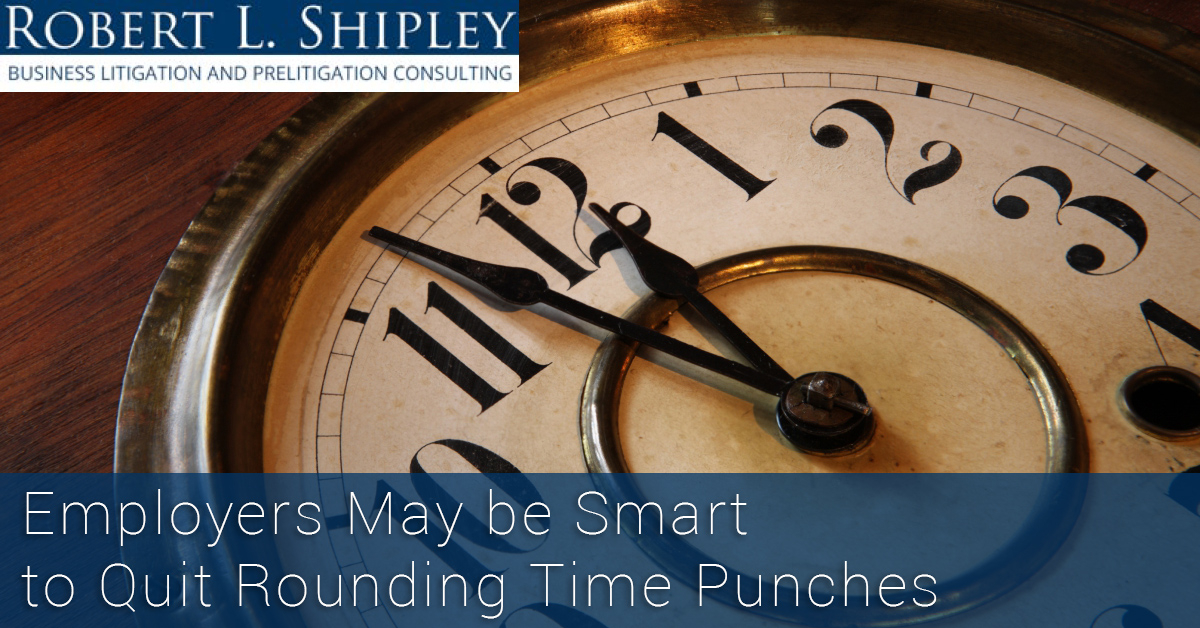It’s my experience that time punch rounding is a common practice for California employers. The rounding practice I see most often rounds time punches to the nearest tenth of an hour (the nearest six minutes). Although California expressly allows employers to round time punches, there are serious risks to engaging such a practice.
Under California law, employers are permitted to utilize a rounding policy for time punches provided the rounding is used in such a manner that it will not result, over a period of time, in failure to compensate the employees properly for all the time they have actually worked. As a practical matter, this means that an employer complies with this rule only if on average, and over time, the rounding policy favors neither the employer nor the employee.
The question most employers should ask themselves, then, is: “How can we be sure that our company’s rounding policy favors neither the employer nor the employee?” In my experience, an employer who has a workforce that arrives to work on time or early and works until the end of the day may inadvertently violate the requirement that rounding remains neutral over time.
The reality is that an employer cannot know for certain whether its rounding practice is neutral over time unless it undertakes a detailed time-punch analysis, a costly and time-consuming endeavor usually conducted by experts. Such an analysis would have to occur on a frequent basis to ensure continuing compliance.
A prime example of the type of challenges employers face when they round time punches (even in an arguably compliant manner) is the case See’s Candy Shops, Inc. v. Superior Court. See’s Candy was sued in a class action that alleged improper rounding practices. The case progressed to a summary judgment motion in which the parties were arguing over whether a detriment to one employee of .47 hours (yes, less than one hour) over the course of five years violated the rounding rule. Whether or not See’s Candy won the ultimate argument (the Court of Appeals said that See’s Candy could assert a defense that they complied with the law, but did not go so far as to say that they had indeed complied) ignores the expense and frustration See’s Candy endured arguing the point in the first place. Sometimes in the employment landscape, once a lawsuit is filed, the employer suffers a sort of loss even if in the end it prevails. See’s Candy was forced to fund a detailed expert analysis and defend a lawsuit just to obtain an opinion from the Court of Appeals that it might have a defense of compliance.
The See’s Candy case is an example of a situation in which an employer can lose while it’s winning. All this is to say that in California’s current legal climate, employers would be well served to weigh the costs of continuing to use a time-punch rounding policy against the seemingly meager benefits of doing so. The best kind of winning might be not having to defend a lawsuit at all.
San Diego employment attorney Robert L. Shipley can assist with class action settlements, ADA compliance, labor laws, and more. Mr. Shipley’s counsel practice can give you the upper hand in your case. Call our law firm today.

